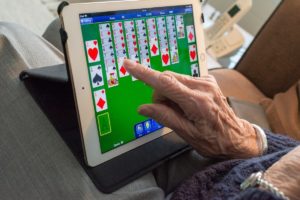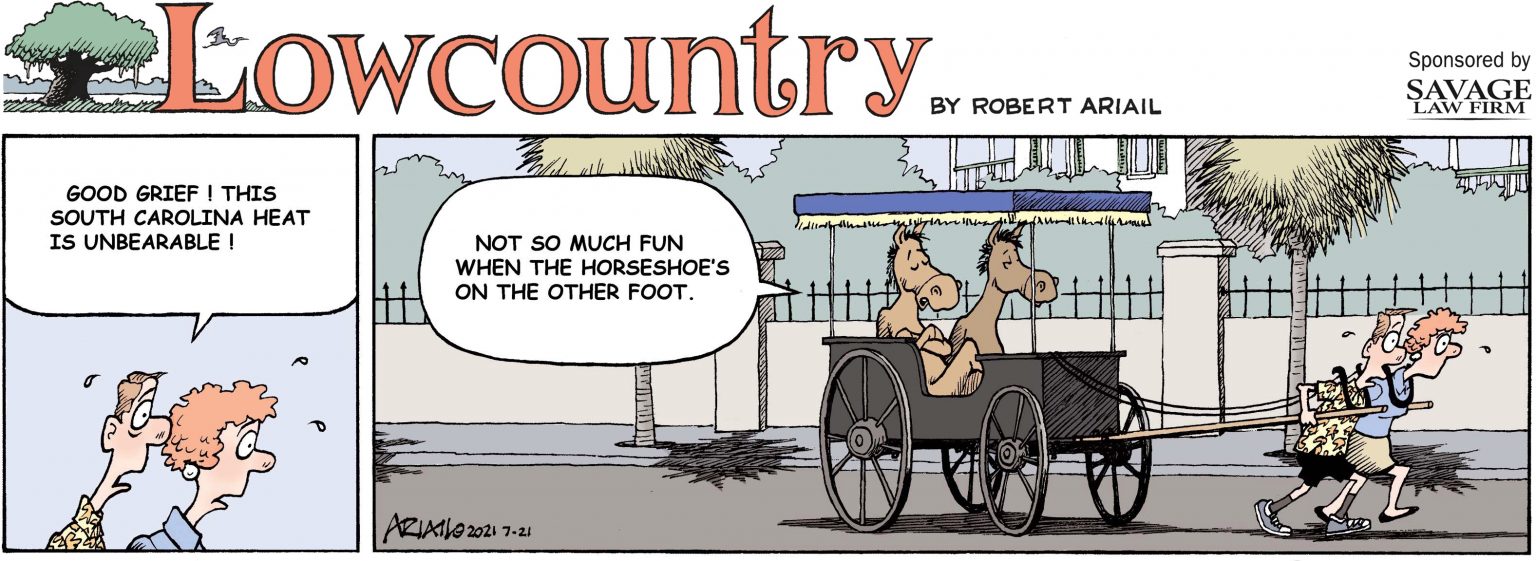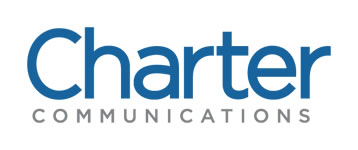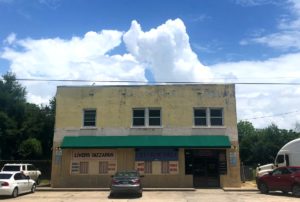STATEHOUSE REPORT | ISSUE 20.30 | JULY 23, 2021
BIG STORY: Rural telehealth pilot program for seniors has great promise, officials say
LOWCOUNTRY, Ariail: On the other foot
COMMENTARY, Brack: Reform state tax code to make it fairer
SPOTLIGHT: Charter Communications
FEEDBACK: Crank conch call
MYSTERY PHOTO: Rear view
Rural telehealth pilot for seniors said to show great promise

By Al Dozier, special to Statehouse Report | For many seniors in rural areas, getting online is virtually learning a new language. But it could vastly improve their health.
Elderly residents in rural areas of Barnwell and Allendale counties recently completed a “literacy learning” program conducted by Palmetto Care Connections (PCC), a statewide, non-profit telehealth organization.
The program was part of a pilot project funded by the Rural Local Initiatives Support Corporation (LISC) and the S.C. Department on Aging to help 100 seniors who live in rural communities with digital literacy training. The program provides each with a free digital tablet plus a free cellular service for 12 months.
Participants took classes at a local senior citizens center where they were provided with the free digital tablet, something many have rarely used. It’s that table-top device the grandkids are always playing with.
There was some doubt in the beginning about seniors taking on something like digital learning. But PCC officials said the opposite was true.

“They loved it,” said Kathy Schwarting, CEO of PCC, which is located in Orangeburg.
Some of the participants gave positive comments about the class in a recent news release posted by PCC.
“I enjoyed the class, liked the people and could follow the instructions they gave,” said Leslie Dowling of Blackville. I learned about sending and receiving emails, which is something I didn’t know. It makes me feel real good.”
“I’m planning on using telehealth,” said Harry Singleton of Allendale. “It’s good to have the opportunity to talk to my doctor without having to go to his office.”
Helping seniors connect with health care providers was considered the most important issue, but Schwarting said the program also offered the opportunity to learn how to email friends and family, which was very important to many of the participants. Some even learned how to play games on the computer.
Senior service organizations throughout the state are familiar with the program.
Shawn Hege, director of Senior Services at Generations Unlimited in Barnwell and Blackville, said: “This program was amazing—a great service to our seniors, especially those who need more interaction. Seeing their faces light up when they connected with family and friends was incredible.”
Soon after the first sessions were offered, Schwarting said many participants asked for longer sessions. Some wanted more classes. She said PCC agreed to those requests.
A statewide model?
 The accomplishments of the program promise change for the state, Schwarting said.
The accomplishments of the program promise change for the state, Schwarting said.
“It is our hope that this pilot program will be a model of one approach to closing the digital divide in South Carolina,” she said.
Seniors from Clarendon, lower Richland and Williamsburg counties are slated to complete the training in the coming weeks as part of the initial pilot program. PCC plans to expand the training for senior and underserved populations throughout the state.
PCC co-chairs the South Carolina Telehealth Alliance, along with the Medical University of South Carolina, serving as an advocate for rural providers and partnering with organizations to improve health care access and delivery for all South Carolinians.
Rural areas are always short-handed for medical needs, according to state officials. They typically have fewer health care resources than other areas — fewer physicians and other providers, fewer facilities and fewer hospitals, if there is one at all. When there is a hospital, it may have fewer, or less intensive, services.
That’s why PCC officials say “literacy learning” has become a critical need.
- Have a comment? Send to feedback@statehousereport.com
On the other foot

Cartoonist Robert Ariail always has an interesting take on what’s going on in South Carolina. His weekly “Lowcountry” strip is originally drawn for our sister publication, the Charleston City Paper. Love the cartoon? Hate it? What do you think: feedback@statehousereport.com. Check out the Best of Charleston 2021.
Reform state tax code to make it fairer

By Andy Brack, editor and publisher | It’s hard to believe 15 years have passed since the publication of a policy book that suggested ways South Carolina’s tax code could be brought into the modern age.
 “Doing Better: Progressive Tax Reform for the American South” said states should do two basic things to make taxes fairer to everyone — broaden the tax base and lower tax rates. Translated into English, the book by the Center for a Better South suggested removing special-interest sales tax exemptions, taxing more services, reducing corporate loopholes, modernizing income tax brackets and altering the property tax structure to make it better for everyone.
“Doing Better: Progressive Tax Reform for the American South” said states should do two basic things to make taxes fairer to everyone — broaden the tax base and lower tax rates. Translated into English, the book by the Center for a Better South suggested removing special-interest sales tax exemptions, taxing more services, reducing corporate loopholes, modernizing income tax brackets and altering the property tax structure to make it better for everyone.
Unfortunately, most of this work has been left undone in South Carolina. The state still loses more than $3 billion — yes, billion — in tax revenue every year because it has more than 80 special-interest sales tax exemptions. Corporate loopholes and incentives still give preferences to one set of businesses over others. Property taxes have been fiddled with to generate more, not fewer, inequities.
So it comes as no surprise that a new report highlights how South Carolina has missed the mark on creating a better taxing system. The report by the nonpartisan Tax Foundation essentially looks at what states do to create good climates for businesses. The study, “Location Matters 2021: The State Tax Costs of Doing Business,” is a comparison of corporate tax costs among the 50 states. The bottom line: South Carolina is ranked at a too-familiar place, the bottom.
By comparison, tax reform in the Carolina to our north has created a dynamic business environment that has made it one of the best states for business, according to the foundation.
“North Carolina’s corporate income tax rate is now the nation’s lowest at 2.5 percent but that’s just one factor in the state’s competitive transformation,” according to a Tax Foundation email touting the new report. “Since 2013, North Carolina also broadened tax bases and lowered rates, reducing corporate income, individual income and franchise tax burdens. These efforts have yielded the third best rank for new firms and fifth best for mature firms.”
In other words, North Carolina did the kinds of things that economists have suggested to make the tax environment more equitable. South Carolina? Not so much. It ranked ninth from the bottom in the study’s business environment for new businesses and third from the bottom for mature businesses.
For example, new distribution centers locating in South Carolina face a “heavy tax burden with an effective tax rate of 61.5 percent, just shy of double the median rate for this firm type nationwide,” the report said. Mature distribution centers face a 48.6 percent tax rate.
A well-structured tax code should be neutral — meaning everyone should be treated the same, said Jared Walczak, a Tax Foundation vice president.
Otherwise, “you’re creating inequities,” he said. “Both sides of the aisle should be able to recognize that this is a problem — because you then will have government picking the winners and losers” by awarding incentives to some businesses and ignoring others.
“They should leave it to the marketplace,” he said, adding that incentives, such as location bonuses or carve-outs to new businesses might attract a few businesses, but are hurtful to many existing and local businesses who can never qualify for similar treatment.
South Carolina lawmakers need to dust off the Center’s book plus review past tax reform studies by former Gov. Mark Sanford and a S.C. House study committee. Then they should get down to the real work of making a stronger tax code that is fairer, broadens the base and lowers rates.
- Have a comment? Send to: feedback@statehousereport.com.
Charter Communications
 The public spiritedness of our underwriters allows us to bring Statehouse Report to you at no cost. Today, we’re happy to shine the spotlight on Charter Communications, the nation’s fastest-growing TV, internet and voice company. Committed to integrating the highest quality service with superior entertainment and communications products, Charter is at the intersection of technology and entertainment, facilitating essential communications that connect 24 million residential and business customers in 41 states, including South Carolina. In addition to being committed to giving back to the communities we serve, the bedrock of our business strategy is to serve our customers and exceed their expectations.
The public spiritedness of our underwriters allows us to bring Statehouse Report to you at no cost. Today, we’re happy to shine the spotlight on Charter Communications, the nation’s fastest-growing TV, internet and voice company. Committed to integrating the highest quality service with superior entertainment and communications products, Charter is at the intersection of technology and entertainment, facilitating essential communications that connect 24 million residential and business customers in 41 states, including South Carolina. In addition to being committed to giving back to the communities we serve, the bedrock of our business strategy is to serve our customers and exceed their expectations.
“We, at our core, are a service organization,” President and CEO Tom Rutledge says. “And every product we sell has a huge service component.”
- To learn more, visit Charter’s South Carolina services online.
Crank conch call
![]() To the editor:
To the editor:
I love the obnoxious call from the conch! “They” seem to be able to find a mark no matter where you may try to hide.
— Donna McGreevy, Columbia, S.C.
Fright show
To the editor:
I am often horrified by the actions (or inactions) of our S.C. legislature, but when I read your article about state executions, I just had to think, “How low can we go?”
There is a drug, fentanyl,, which is readily available and a much more humane way to die than the various gruesome options the legislature is considering. More.
— Carol Hillman, Bluffton, S.C.
- Send your letters or comments to: feedback@statehousereport.com
Rear view

Here’s a rear view of a statue somewhere in South Carolina that might be pretty tough to identify. But there are a couple of clues in the photo that might help. Send your guess to feedback@statehousereport.com — and remember to include your name, home city and contact information.
 Last week’s mystery, “Livers and gizzards,” is a Chinese deli on Spruill Avenue in North Charleston, S.C. Congratulations to these sleuths who identified it: Elizabeth Jones and Jay Altman, both of Columbia; Jacie Godfrey of Florence; Allan Peel of San Antonio, Texas; David Lupo of Mount Pleasant; and Kevin Mertens of Greenville. Let us know if you ever stop by for livers or gizzards.
Last week’s mystery, “Livers and gizzards,” is a Chinese deli on Spruill Avenue in North Charleston, S.C. Congratulations to these sleuths who identified it: Elizabeth Jones and Jay Altman, both of Columbia; Jacie Godfrey of Florence; Allan Peel of San Antonio, Texas; David Lupo of Mount Pleasant; and Kevin Mertens of Greenville. Let us know if you ever stop by for livers or gizzards.
- Send us a mystery. If you have a photo that you believe will stump readers, send it along (but make sure to tell us what it is because it may stump us too!) Send to: feedback@statehousereport.com and mark it as a photo submission. Thanks.
ORDER NOW: Copies are in Lowcountry-area bookstores now, but if you can’t swing by, you can order a copy online today.
ABOUT STATEHOUSE REPORT
Statehouse Report, founded in 2001 as a weekly legislative forecast that informs readers about what is going to happen in South Carolina politics and policy, is provided to you at no charge every Friday.
- Editor and publisher: Andy Brack, 843.670.3996
Donate today
We’re proud to offer Statehouse Report for free. For more than a dozen years, we’ve been the go-to place for insightful independent policy and political news and views in the Palmetto State. And we love it as much as you do.
But now, we can use your help. If you’ve been thinking of contributing to Statehouse Report over the years, now would be a great time to contribute as we deal with the crisis. In advance, thank you.
Buy the book
Now you can get a copy of editor and publisher Andy Brack’s We Can Do Better, South Carolina! ($14.99) as a paperback or as a Kindle book ($7.99). . The book of essays offers incisive commentaries by editor and publisher Andy Brack on the American South, the common good, vexing problems for the Palmetto State and interesting South Carolina leaders.
More
- Mailing address: Send inquiries by mail to: P.O. Box 21942, Charleston, SC 29413
- Subscriptions are free: Click to subscribe.
- We hope you’ll keep receiving the great news and information from Statehouse Report, but if you need to unsubscribe, go to the bottom of the weekly email issue and follow the instructions.
- Read our sister publications: Charleston City Paper (every Wednesday) | Charleston Currents (every Monday).
- © 2021, Statehouse Report, a publication of City Paper Publishing, LLC. All rights reserved.
















 We Can Do Better, South Carolina!
We Can Do Better, South Carolina!